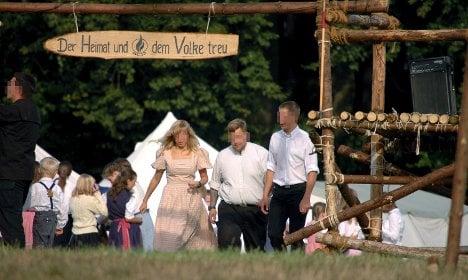Authorities carried out dawn raids in five cities on members of the “Young Nationalist Democrats” (JN), whose activities and slogans bear “clear parallels” to the banned neo-Nazi organisation HDJ, police said. They searched apartments in Oranienburg, Ludwigshafen, Bad Dürkheim, Heidelberg and Osnabrück.
“Various blatantly right-wing extremist documents belonging to IG Fahrt & Lager were found during the searches,” the police said in a statement. “The searches were intended to stop the upcoming national year-end camp.”
The HDJ, whose names translates as “German Youth Loyal to the Homeland,” ran
Hitler Youth-style camps teaching children as young as six that foreigners and
Jews were a threat to the nation. Authorities banned the group in March 2009.
The state Office for Criminal Investigation in Hannover warned there was a danger that the JN would break laws at their planned get-together, including incitement to racial hatred and wearing banned uniforms.
AFP/The Local



 Please whitelist us to continue reading.
Please whitelist us to continue reading.
Member comments